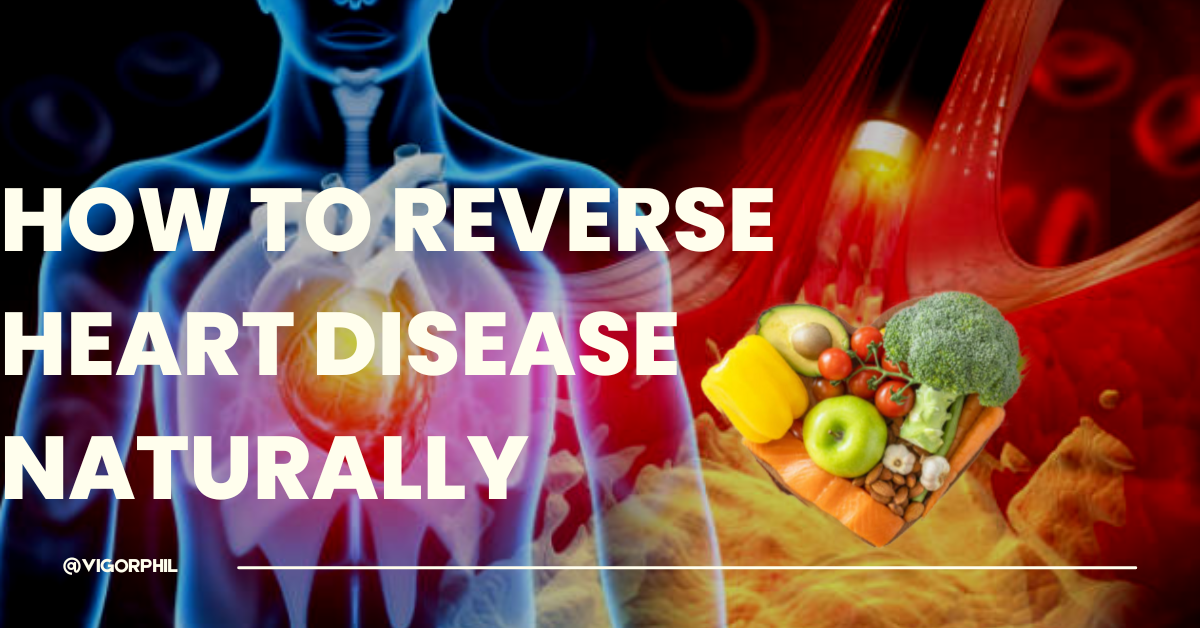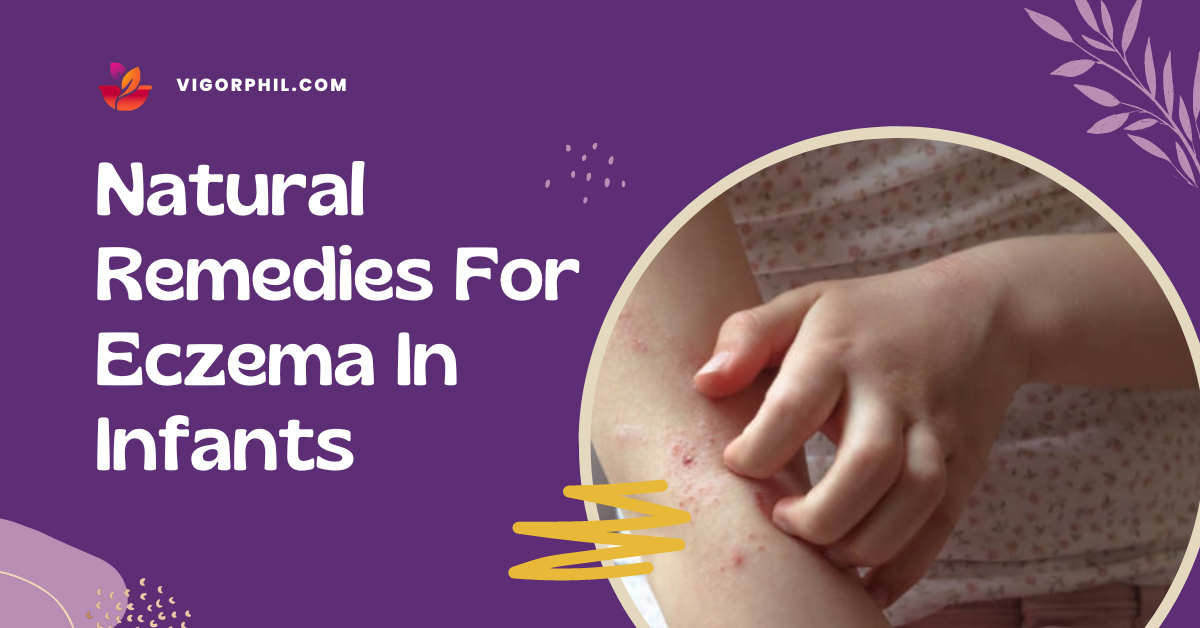Heart disease is a serious health issue that affects millions of people worldwide. It is caused by a range of factors, including high blood pressure, high cholesterol, an unhealthy diet, lack of physical activity, and smoking. The disease can lead to serious complications such as heart attack, stroke, and even death.
Reversing heart disease naturally is an effective and non-invasive way to improve heart health and reduce the risk of future health problems. Natural methods, such as lifestyle changes, nutritional supplements, and alternative therapies, can help to improve cardiovascular health and prevent the progression of heart disease.
This article will explore the various natural methods for reversing heart disease. From exercise and a healthy diet to nutritional supplements, herbs and spices, and alternative therapies, we will provide a comprehensive guide to help you improve your heart health and reduce the risk of heart disease. It’s important to note that while these methods can be effective, it’s always best to consult with a healthcare professional before making any changes to your health regimen.
Lifestyle Changes
Exercise
Exercisehttps://vigorphil.com/10-benefits-of-exercise-on-mental-health/ is one of the most effective natural ways to reverse heart disease. Regular physical activity can help to improve cardiovascular health by reducing the risk of heart disease, lowering blood pressure, and improving blood circulation. Exercise can also help to improve cholesterol levels, control weight, and reduce stress levels, which are all crucial factors in maintaining a healthy heart.
There is a range of exercises that can be beneficial for the heart, including aerobics, strength training, and yoga. Aerobic activities, such as walking, jogging, swimming, and cycling, are great for improving cardiovascular health and increasing heart rate. Strength training, such as weightlifting and resistance exercises, can help to improve muscle strength and endurance, which can help to reduce the risk of heart disease.
It’s important to start slowly and gradually increase the intensity and duration of exercise to avoid injury. Aim for at least 30 minutes of moderate-intensity exercise, such as brisk walking, every day, and consult with a healthcare professional before starting a new exercise program. Exercise is a key component in reversing heart disease naturally, and by incorporating physical activity into your daily routine, you can improve your heart health and reduce the risk of heart disease.
A Healthy Diet
A healthy diet is another important natural way to reverse heart disease. Eating a balanced diet that is rich in fruits, vegetables, whole grains, and lean protein can help to improve cardiovascular health and reduce the risk of heart disease. Here are some dietary recommendations for reversing heart disease naturally:
- Include plenty of fruits and vegetables in your diet. They are high in fiber, antioxidants, and nutrients that are essential for maintaining a healthy heart.
- Choose whole grains over processed grains. Whole grains are high in fiber and can help to lower cholesterol levels and improve heart health.
- Consume lean protein, such as fish, poultry, and legumes, to help reduce cholesterol levels and improve heart health.
- Limit saturated and trans fats found in high-fat dairy products, fatty meats, and processed foods. These types of fats can increase cholesterol levels and contribute to the development of heart disease.
- Reduce salt intake. High salt consumption can lead to high blood pressure, which is a significant risk factor for heart disease.
- Avoid processed and sugary foods. These types of foods are high in calories and low in nutrients and can contribute to weight gain and heart disease.
By incorporating a healthy diet into your lifestyle, you can reverse heart disease naturally and improve your heart health. It’s important to consult with a healthcare professional for personalized dietary recommendations, as individual needs may vary.
Stress Management
Stress management is an important aspect of reversing heart disease naturally. Stress can increase the risk of heart disease by raising blood pressure and causing changes in heart rate. Chronic stress can also contribute to unhealthy lifestyle choices, such as overeating and smoking, which can further increase the risk of heart disease.
Here are some stress management techniques for reversing heart disease naturally:
- Exercise: Regular physical activity can help to reduce stress levels and improve heart health.
- Mindfulness practices: Techniques such as meditation and yoga can help to reduce stress levels and improve overall well-being.
- Relaxation techniques: Deep breathing, progressive muscle relaxation, and guided imagery are all effective ways to reduce stress levels and improve heart health.
- Time management: Prioritizing tasks and finding ways to manage time more effectively can help to reduce stress levels and improve overall well-being.
- Support system: Surrounding yourself with supportive friends and family members can help to reduce stress levels and improve overall well-being.
By incorporating stress management techniques into your lifestyle, you can reduce stress levels and improve heart health. It’s important to consult with a healthcare professional if stress levels are affecting your daily life, as they may be able to provide additional support and resources.
Adequate Sleep
Getting adequate sleep is an important aspect of reversing heart disease naturally. Sleep plays a crucial role in maintaining overall health and well-being, and a lack of sleep can increase the risk of heart disease.
Here are some ways in which sleep can impact heart health:
- Chronic sleep deprivation can increase blood pressure, which is a major risk factor for heart disease.
- Lack of sleep can also lead to weight gain, which is another risk factor for heart disease.
- Adequate sleep is important for regulating hormones, such as cortisol and insulin, which play a role in maintaining a healthy heart.
Here are some tips for getting adequate sleep and reversing heart disease naturally:
- Establish a consistent sleep schedule: Go to bed and wake up at the same time every day.
- Create a sleep-conducive environment: Keep the bedroom dark, quiet, and cool.
- Limit screen time before bed: The blue light from electronic devices can interfere with sleep quality.
- Avoid caffeine and alcohol before bedtime: These substances can interfere with sleep quality.
- Practice relaxation techniques before bedtime: Techniques such as deep breathing and progressive muscle relaxation can help to improve sleep quality.
By incorporating healthy sleep habits into your lifestyle, you can reduce the risk of heart disease and improve overall health and well-being. It’s important to consult with a healthcare professional if you are having difficulty getting adequate sleep, as they may be able to provide additional support and resources.
Staying Hydrated
Staying hydrated is an important aspect of reversing heart disease naturally. Adequate hydration is essential for maintaining cardiovascular health and reducing the risk of heart disease.
Here are some ways in which hydration can impact heart health:
- Dehydration can lead to increased blood viscosity, which can increase the risk of heart disease.
- Adequate hydration can help to regulate blood pressure, which is a major risk factor for heart disease.
- Hydration is also important for maintaining electrolyte balance, which is crucial for proper heart function.
Here are some tips for staying hydrated and reversing heart disease naturally:
- Drink plenty of water throughout the day. Aim for at least eight 8-ounce glasses of water per day.
- Incorporate other hydrating beverages, such as herbal teas and coconut water, into your diet.
- Eat water-rich fruits and vegetables, such as watermelon and cucumbers, to help increase hydration levels.
- Limit caffeine and alcohol, which can increase dehydration.
- Carry a water bottle with you throughout the day to ensure that you are staying hydrated.
By incorporating adequate hydration into your lifestyle, you can reduce the risk of heart disease and improve overall health and well-being. It’s important to consult with a healthcare professional for personalized recommendations, as individual hydration needs may vary.
Nutritional Supplements
Incorporating Omega-3 Fatty Acid
Incorporating omega-3 fatty acids into your diet is an important aspect of reversing heart disease naturally. Omega-3 fatty acids are essential fatty acids that have been shown to have a number of beneficial effects on heart health.
Here are some ways in which omega-3 fatty acids can impact heart health:
- Omega-3 fatty acids can help to lower blood pressure, which is a major risk factor for heart disease.
- Omega-3 fatty acids can also help to reduce inflammation, which is a contributing factor in the development of heart disease.
- Omega-3 fatty acids can improve lipid profiles, which can reduce the risk of heart disease.
Here are some tips for incorporating omega-3 fatty acids into your diet and reversing heart disease naturally:
- Eat fatty fish, such as salmon and mackerel, which are rich in omega-3 fatty acids.
- Consider taking a fish oil supplement, which can provide an additional source of omega-3 fatty acids.
- Incorporate other foods that are rich in omega-3 fatty acids, such as flaxseeds, chia seeds, and walnuts.
- Limit intake of omega-6 fatty acids, which can compete with omega-3 fatty acids for absorption in the body.
By incorporating omega-3 fatty acids into your diet, you can reduce the risk of heart disease and improve overall heart health. It’s important to consult with a healthcare professional before starting a new supplement regimen, as individual needs may vary.
Coenzyme Q10 (CoQ10)
Coenzyme Q10 (CoQ10) is a naturally occurring substance that has been shown to have a number of beneficial effects on heart health. Incorporating CoQ10 into your diet is an important aspect of reversing heart disease naturally.
Here are some ways in which CoQ10 can impact heart health:
- CoQ10 is essential for energy production in cells, including the cells in the heart muscle.
- CoQ10 can help to reduce oxidative stress, which can contribute to the development of heart disease.
- CoQ10 can also help to reduce inflammation, which is a contributing factor in the development of heart disease.
Here are some tips for incorporating CoQ10 into your diet and reversing heart disease naturally:
- Eat foods that are rich in CoQ10, such as fatty fish, organ meats, and whole grains.
- Consider taking a CoQ10 supplement, which can provide an additional source of this important nutrient.
- Incorporate antioxidant-rich foods, such as berries and leafy greens, into your diet to support CoQ10 levels.
By incorporating CoQ10 into your diet, you can reduce the risk of heart disease and improve overall heart health. It’s important to consult with a healthcare professional before starting a new supplement regimen, as individual needs may vary.
Magnesium
Magnesium is an essential mineral that has been shown to have a number of beneficial effects on heart health. Incorporating magnesium into your diet is an important aspect of reversing heart disease naturally.
Here are some ways in which magnesium can impact heart health:
- Magnesium helps to regulate blood pressure, which is a major risk factor for heart disease.
- Magnesium can also help to reduce oxidative stress, which can contribute to the development of heart disease.
- Magnesium is involved in the functioning of the heart muscle and can help to improve heart function.
Here are some tips for incorporating magnesium into your diet and reversing heart disease naturally:
- Eat magnesium-rich foods, such as leafy greens, nuts and seeds, and whole grains.
- Consider taking a magnesium supplement, which can provide an additional source of this important mineral.
- Limit your intake of processed foods, which are often low in magnesium.
By incorporating magnesium into your diet, you can reduce the risk of heart disease and improve overall heart health. It’s important to consult with a healthcare professional before starting a new supplement regimen, as individual needs may vary.
Vitamin D
Vitamin D is a vital nutrient that has been shown to have a number of beneficial effects on heart health. Incorporating vitamin D into your diet is an important aspect of reversing heart disease naturally.
Here are some ways in which vitamin D can impact heart health:
- Vitamin D helps to regulate blood pressure, which is a major risk factor for heart disease.
- Vitamin D can also help to reduce inflammation, which is a contributing factor in the development of heart disease.
- Vitamin D is essential for maintaining strong bones, which can help to reduce the risk of falls and fractures, a common cause of heart disease in older individuals.
Here are some tips for incorporating vitamin D into your diet and reversing heart disease naturally:
- Get regular exposure to sunlight, which helps the body produce vitamin D.
- Eat foods that are rich in vitamin D, such as fatty fish, eggs, and mushrooms.
- Consider taking a vitamin D supplement, which can provide an additional source of this important nutrient.
By incorporating vitamin D into your diet, you can reduce the risk of heart disease and improve overall heart health. It’s important to consult with a healthcare professional before starting a new supplement regimen, as individual needs may vary.
Herbs and Spices
Garlic
Garlic is a commonly used ingredient in cooking that has been shown to have a number of beneficial effects on heart health. Incorporating garlic into your diet is an important aspect of reversing heart disease naturally.
Here are some ways in which garlic can impact heart health:
- Garlic has been shown to lower blood pressure, which is a major risk factor for heart disease.
- Garlic can also help to reduce oxidative stress, which can contribute to the development of heart disease.
- Garlic has been shown to have antimicrobial properties and can help to reduce inflammation, both of which can contribute to the development of heart disease.
Here are some tips for incorporating garlic into your diet and reversing heart disease naturally:
- Use fresh garlic in cooking, which has been shown to have the most beneficial effects on heart health.
- Consider taking a garlic supplement, which can provide an additional source of this important ingredient.
- Incorporate other heart-healthy ingredients, such as olive oil and leafy greens, into your diet to support the benefits of garlic.
By incorporating garlic into your diet, you can reduce the risk of heart disease and improve overall heart health. It’s important to consult with a healthcare professional before starting a new supplement regimen, as individual needs may vary.
Turmeric
Turmeric is a spice commonly used in cooking and traditional medicine that has been shown to have a number of beneficial effects on heart health. Incorporating turmeric into your diet is an important aspect of reversing heart disease naturally.
Here are some ways in which turmeric can impact heart health:
- Turmeric has been shown to have anti-inflammatory properties, which can help to reduce the risk of heart disease.
- Turmeric can also help to reduce oxidative stress, which can contribute to the development of heart disease.
- Turmeric has been shown to improve blood circulation, which is important for overall heart health.
Here are some tips for incorporating turmeric into your diet and reversing heart disease naturally:
- Use fresh or dried turmeric in cooking, or add turmeric to smoothies or teas.
- Consider taking a turmeric supplement, which can provide an additional source of this important spice.
- Incorporate other heart-healthy ingredients, such as ginger and black pepper, into your diet to support the benefits of turmeric.
By incorporating turmeric into your diet, you can reduce the risk of heart disease and improve overall heart health. It’s important to consult with a healthcare professional before starting a new supplement regimen, as individual needs may vary.
Cayenne Pepper
Cayenne pepper is a type of chili pepper that has been shown to have a number of beneficial effects on heart health. Incorporating cayenne pepper into your diet is an important aspect of reversing heart disease naturally.
Here are some ways in which cayenne pepper can impact heart health:
- Cayenne pepper has been shown to help improve blood circulation, which is important for overall heart health.
- Cayenne pepper can also help to reduce oxidative stress, which can contribute to the development of heart disease.
- Cayenne pepper has been shown to have anti-inflammatory properties, which can help to reduce the risk of heart disease.
Here are some tips for incorporating cayenne pepper into your diet and reversing heart disease naturally:
- Use cayenne pepper in cooking to add flavor and nutrition to your meals.
- Consider taking a cayenne pepper supplement, which can provide an additional source of this important ingredient.
- Incorporate other heart-healthy ingredients, such as garlic and turmeric, into your diet to support the benefits of cayenne pepper.
By incorporating cayenne pepper into your diet, you can reduce the risk of heart disease and improve overall heart health. It’s important to consult with a healthcare professional before starting a new supplement regimen, as individual needs may vary.
Other Natural Methods
Massage Therapy
Massage therapy is a complementary and alternative medicine that has been shown to have a number of beneficial effects on heart health. Incorporating massage therapy into your self-care routine is an important aspect of reversing heart disease naturally.
Here are some ways in which massage therapy can impact heart health:
- Massage therapy has been shown to help reduce stress, which is a major risk factor for heart disease.
- Massage therapy can also help to improve blood circulation, which is important for overall heart health.
- Massage therapy has been shown to have anti-inflammatory effects, which can help to reduce the risk of heart disease.
Here are some tips for incorporating massage therapy into your routine and reversing heart disease naturally:
- Schedule regular massage therapy sessions to support overall heart health.
- Choose a qualified and licensed massage therapist to ensure the best possible experience and outcomes.
- Consider incorporating other heart-healthy practices, such as exercise and healthy eating, into your routine to support the benefits of massage therapy.
By incorporating massage therapy into your routine, you can reduce the risk of heart disease and improve overall heart health. It’s important to consult with a healthcare professional before starting a new massage therapy regimen, as individual needs may vary.
Hydrotherapy
Hydrotherapy, also known as water therapy, is a form of therapy that uses water to improve physical and mental health. Incorporating hydrotherapy into your self-care routine is an important aspect of reversing heart disease naturally.
Here are some ways in which hydrotherapy can impact heart health:
- Hydrotherapy has been shown to help reduce stress, which is a major risk factor for heart disease.
- Hydrotherapy can also help to improve blood circulation, which is important for overall heart health.
- Hydrotherapy has been shown to have anti-inflammatory effects, which can help to reduce the risk of heart disease.
Here are some tips for incorporating hydrotherapy into your routine and reversing heart disease naturally:
- Schedule regular hydrotherapy sessions, such as soaking in a hot bath or swimming, to support overall heart health.
- Choose a qualified and licensed hydrotherapist to ensure the best possible experience and outcomes.
- Consider incorporating other heart-healthy practices, such as exercise and healthy eating, into your routine to support the benefits of hydrotherapy.
By incorporating hydrotherapy into your routine, you can reduce the risk of heart disease and improve overall heart health. It’s important to consult with a healthcare professional before starting a new hydrotherapy regimen, as individual needs may vary.
conclusion
In conclusion, there are many natural ways to reverse heart disease, including exercise, a healthy diet, stress management, sleep, hydration, omega-3 fatty acids, Coenzyme Q10, magnesium, vitamin D, garlic, turmeric, cayenne pepper, massage therapy, and hydrotherapy.
It’s important to consult with a healthcare professional before starting any new regimen, as individual needs may vary. Incorporating a combination of these natural remedies into your self-care routine can help to reduce the risk of heart disease and improve overall heart health.
Remember that reversing heart disease is a long-term process that requires lifestyle changes, dedication, and a commitment to maintaining a healthy lifestyle. With the right combination of practices and a focus on overall well-being, you can effectively reverse heart disease and improve your overall health and quality of life.
frequently asked question
What is heart disease and how can it be reversed naturally?
Heart disease refers to a range of conditions that affect the heart, including coronary artery disease, heart attacks, and heart failure. It can be reversed naturally through lifestyle changes such as exercise, healthy diet, stress management, sleep, hydration, and incorporating natural remedies like omega-3 fatty acids, Coenzyme Q10, magnesium, vitamin D, garlic, turmeric, cayenne pepper, massage therapy, and hydrotherapy.
Is exercise really effective in reversing heart disease?
Yes, exercise is one of the most effective natural ways to reverse heart disease. Regular physical activity can improve heart health by reducing stress, improving blood circulation, and reducing inflammation.
Is it possible to reverse heart disease through diet alone?
While diet alone may not reverse heart disease, it is an important factor in improving heart health. A healthy diet that is rich in fruits, vegetables, whole grains, and lean protein can help to reduce the risk of heart disease and support overall heart health.
How does stress management impact heart disease?
Stress is a major risk factor for heart disease, and managing stress can help to reduce the risk of heart disease and improve overall heart health. Stress management techniques like mindfulness, meditation, and deep breathing can help to reduce stress and improve heart health.
How does sleep impact heart disease?
Lack of sleep can increase the risk of heart disease by affecting hormones and causing inflammation. Maintaining a consistent sleep schedule and getting adequate sleep can help to reduce the risk of heart disease and improve overall heart health.
Why is hydration important for heart health?
Staying hydrated is important for heart health because it helps to improve blood circulation and reduce the risk of heart disease. Drinking enough water and incorporating hydration-rich foods into your diet can help to support overall heart health.
What are omega-3 fatty acids and how do they impact heart health?
Omega-3 fatty acids are a type of healthy fat that can be found in foods like fish, nuts, and seeds. Omega-3 fatty acids have been shown to reduce inflammation and improve heart health.
What is Coenzyme Q10 and how does it impact heart health?
Coenzyme Q10 is a naturally occurring compound in the body that is important for energy production and heart health. Low levels of Coenzyme Q10 have been linked to heart disease, and supplementing with Coenzyme Q10 can help to improve heart health.
What is magnesium and how does it impact heart health?
Magnesium is a mineral that is important for overall health, including heart health. Low levels of magnesium have been linked to heart disease, and incorporating magnesium-rich foods into your diet and taking magnesium supplements can help to support overall heart health.
Can massage therapy and hydrotherapy really impact heart health?
Massage therapy and hydrotherapy have been shown to have anti-inflammatory effects, reduce stress, and improve blood circulation. Incorporating these therapies into your routine can help to support overall heart health and reduce the risk of heart disease. However, it’s important to consult with a healthcare professional before starting a new therapy regimen, as individual needs may vary.
Reference
- American Heart Association. (2021). Heart Disease & Stroke Statistics. Retrieved from https://www.heart.org/en/health-topics/heart-attack/heart-disease-and-stroke-statistics
- Harvard Health Publishing. (2019). Exercise and heart disease. Retrieved from https://www.health.harvard.edu/heart-health/exercise-and-heart-disease
- American Heart Association. (2021). Eating a Heart-Healthy Diet. Retrieved from https://www.heart.org/en/healthy-living/healthy-eating/eat-smart/nutrition-basics/heart-healthy-diet
- Harvard Health Publishing. (2021). Stress management techniques: evidence-based procedures that reduce stress and promote relaxation. Retrieved from https://www.health.harvard.edu/mind-and-mood/stress-management-techniques-that-work
- National Heart, Lung, and Blood Institute. (2021). Sleep and Heart Health. Retrieved from https://www.nhlbi.nih.gov/health-topics/sleep-and-heart-health
- American Heart Association. (2021). The Benefits of Hydration. Retrieved from https://www.heart.org/en/healthy-living/fitness/fitness-basics/the-benefits-of-hydration
- Harvard Health Publishing. (2021). Omega-3 fatty acids: health benefits and food sources. Retrieved from https://www.health.harvard.edu/nutritional-disorders/omega-3-fatty-acids-health-benefits-and-food-sources
- National Center for Biotechnology Information. (2021). Coenzyme Q10. Retrieved from https://www.ncbi.nlm.nih.gov/pmc/articles/PMC3576891/
- National Institutes of Health. (2021). Magnesium. Retrieved from https://ods.od.nih.gov/factsheets/Magnesium-Consumer/
- Harvard Health Publishing. (2021). Vitamin D: importance, sources, and supplementation. Retrieved from https://www.health.harvard.edu/vitamins-and-supplements/vitamin-d-importance-sources-and-supplementation
- Memorial Sloan Kettering Cancer Center. (2021). Garlic. Retrieved from https://www.mskcc.org/cancer-care/integrative-medicine/herbs/garlic
- National Center for Complementary and Integrative Health. (2021). Turmeric. Retrieved from https://nccih.nih.gov/health/turmeric
- American Heart Association. (2021). Cayenne Pepper and Heart Health. Retrieved from https://www.heart.org/en/healthy-living/healthy-eating/eat-smart/spices-herbs/cayenne-pepper-and-heart-health
- American Massage Therapy Association. (2021). Massage Therapy and Heart Health. Retrieved from https://www.amtamassage.org/articles/3/MTJ/detail/3879/massage-therapy-and-heart-health
- Hydrotherapy and Your Health. (2021). Hydrotherapy: Benefits and Types. Retrieved from https://www.medicalnewstoday.com/articles/320040











